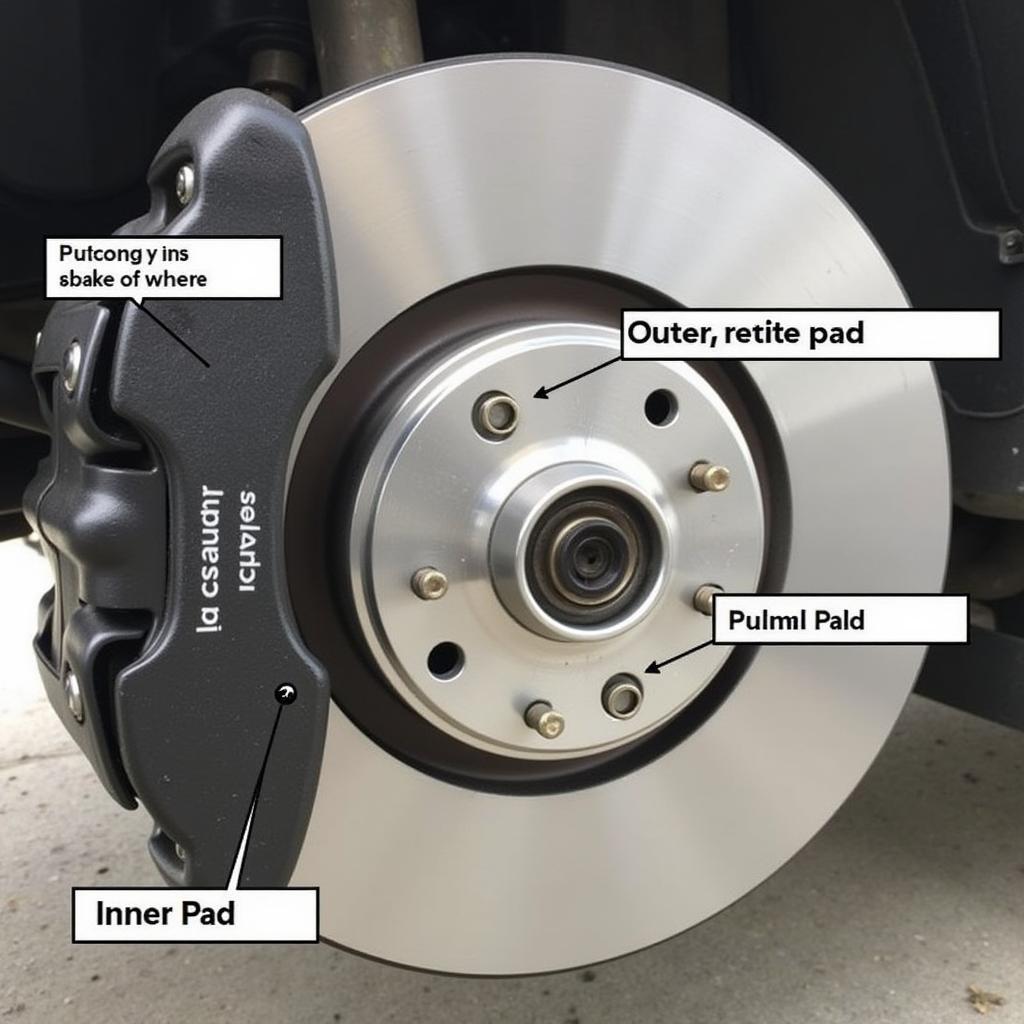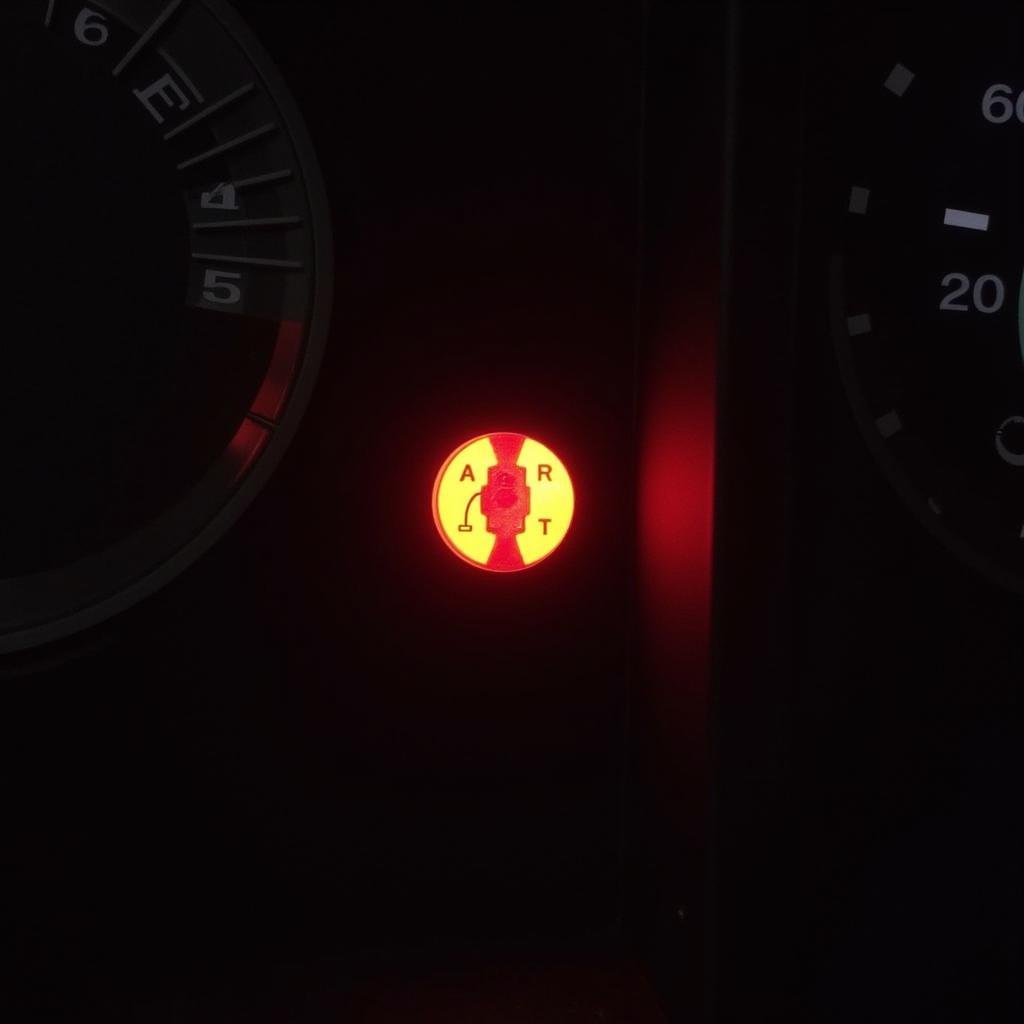The brake warning light on your dashboard is a crucial safety feature, especially in a rugged vehicle like the 2000 Jeep Grand Cherokee. When it illuminates, it signals a potential issue with your braking system that needs immediate attention. Ignoring this warning could compromise your ability to stop safely, putting you and others at risk. This comprehensive guide delves into the common causes of a brake warning light on a 2000 Jeep Grand Cherokee and provides potential solutions to get you back on the road safely.
Several factors can trigger the brake warning light in your Jeep Grand Cherokee. Let’s examine some of the most frequent culprits:
Low Brake Fluid: A Common Culprit
One of the most prevalent reasons for the brake warning light to activate is low brake fluid. Your Grand Cherokee, like all vehicles with hydraulic braking systems, relies on brake fluid to transmit force from the brake pedal to the wheels. If the fluid level drops too low, air can enter the system, significantly reducing braking efficiency.
What to do:
- Check the brake fluid reservoir: Locate the reservoir, usually a translucent container marked “Brake Fluid,” and check the fluid level. If it’s below the minimum mark, you’ll need to add more.
- Add brake fluid: Carefully pour the correct type of brake fluid (DOT 3 or DOT 4, as specified in your owner’s manual) into the reservoir, taking care not to overfill.
- Inspect for leaks: A consistently low brake fluid level indicates a leak. Thoroughly examine the brake lines, hoses, and connections for any signs of fluid seepage. If you find a leak, it’s crucial to address it immediately by a qualified mechanic.
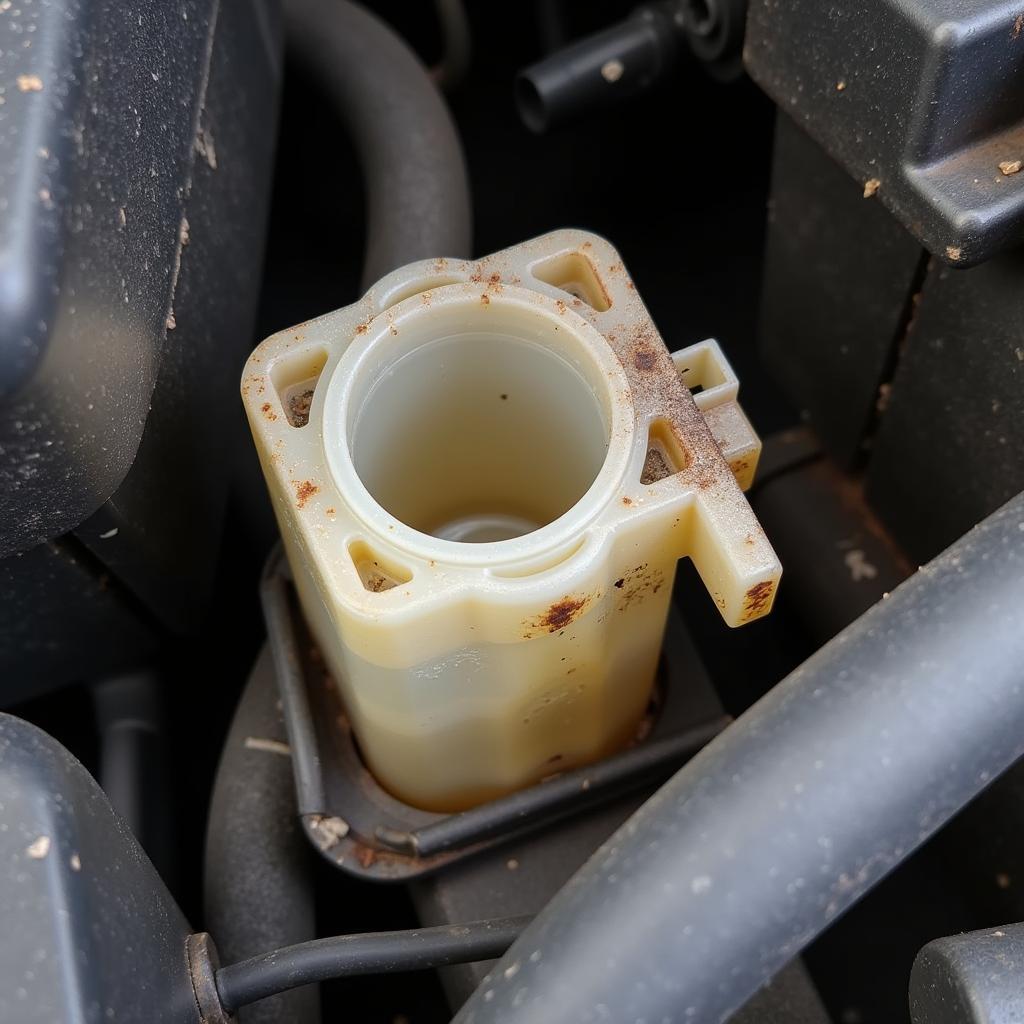 Low Brake Fluid in a Jeep Grand Cherokee
Low Brake Fluid in a Jeep Grand Cherokee
Worn Brake Pads: Time for a Replacement
Brake pads are designed to wear down over time, and their lifespan varies depending on driving habits and conditions. When the friction material on the pads wears thin, it can trigger the brake warning light.
How to tell if your brake pads are worn:
- Squealing or grinding noises when braking: This is a telltale sign of worn brake pads and requires immediate attention.
- Vibrations in the brake pedal: Worn pads can cause uneven contact with the rotors, leading to vibrations felt through the pedal.
- Longer stopping distances: As the pads wear down, your braking distance may increase.
What to do:
If you suspect your brake pads are worn, it’s best to have them inspected by a mechanic. Replacing brake pads is a relatively straightforward job and can often be done as a DIY project with the right tools and guidance.
ABS Issues: When Technology Needs a Check-up
Modern vehicles, including the 2000 Jeep Grand Cherokee, often feature an Anti-lock Braking System (ABS). The ABS system prevents wheel lockup during hard braking, enhancing vehicle control and stability. However, malfunctions within the ABS system can trigger the brake warning light.
Common ABS issues include:
- Faulty ABS sensors: These sensors monitor wheel speed and relay information to the ABS control module. If a sensor malfunctions, it can disrupt the system’s operation.
- Problems with the ABS control module: This module acts as the brain of the ABS system, receiving data from the sensors and regulating brake pressure. A faulty module can lead to various issues, including brake warning light illumination.
What to do:
Diagnosing ABS issues often requires specialized tools and expertise. If you suspect a problem with your Grand Cherokee’s ABS system, it’s best to consult a qualified mechanic for proper diagnosis and repair.
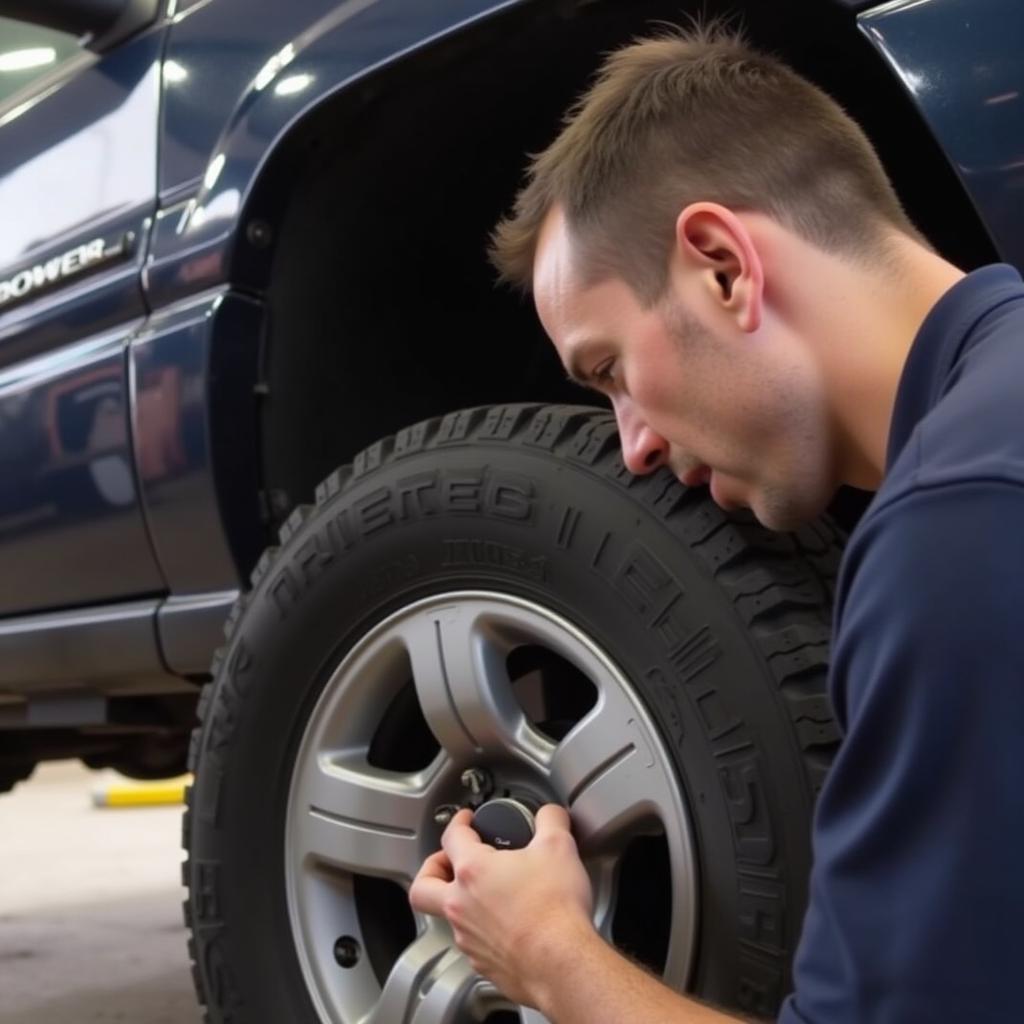 Faulty ABS Sensor in a Jeep Grand Cherokee
Faulty ABS Sensor in a Jeep Grand Cherokee
Other Potential Culprits: Don’t Overlook the Basics
While the aforementioned causes are among the most common, other factors can contribute to the illumination of your Jeep Grand Cherokee’s brake warning light:
- Faulty brake light switch: A malfunctioning brake light switch can disrupt the signal to the brake lights and also trigger the warning light.
- Damaged parking brake lever: If the parking brake lever is not fully released or the sensor detecting its position malfunctions, it can activate the warning light.
- Electrical issues: Problems with wiring, connectors, or fuses within the braking system can also cause the warning light to illuminate.
Expert Insights: What the Pros Have to Say
“Many people underestimate the importance of regular brake system checks,” says John Smith, a certified automotive technician with over 20 years of experience. “Brake fluid flushes, timely pad replacements, and addressing minor issues promptly can prevent major headaches and costly repairs down the road.”
Adding to this, Sarah Jones, a seasoned mechanic specializing in Jeep vehicles, emphasizes, “Don’t ignore unusual noises or vibrations when braking. These are often early warning signs of potential brake problems that should be addressed sooner rather than later.”
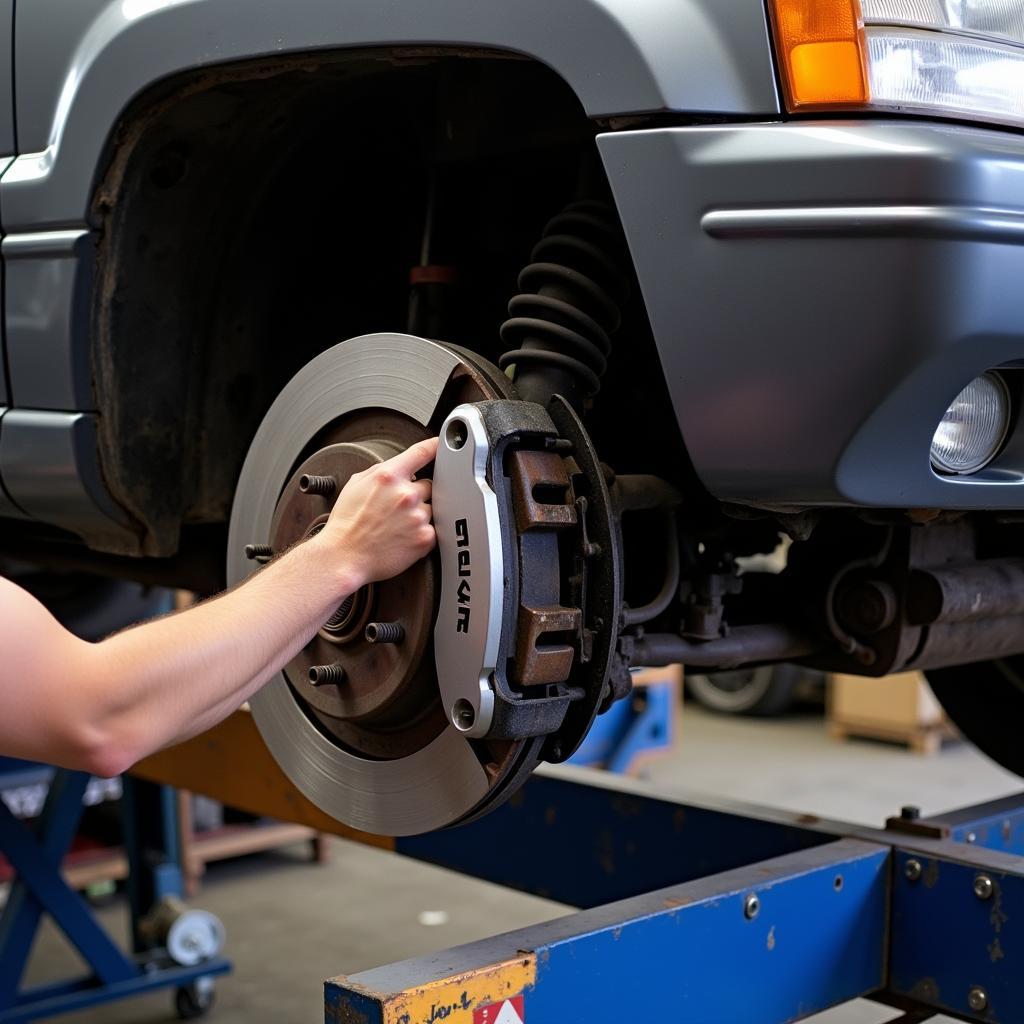 Comprehensive Brake Inspection on a Jeep Grand Cherokee
Comprehensive Brake Inspection on a Jeep Grand Cherokee
Conclusion: Prioritizing Safety on the Road
The brake warning light in your 2000 Jeep Grand Cherokee is a crucial safety indicator that should never be ignored. From low brake fluid to worn pads or ABS issues, understanding the potential causes and solutions empowers you to address the problem promptly and ensure your safety and the safety of others on the road. Remember, regular maintenance and timely repairs are key to maintaining a reliable and safe braking system for your Jeep Grand Cherokee.

